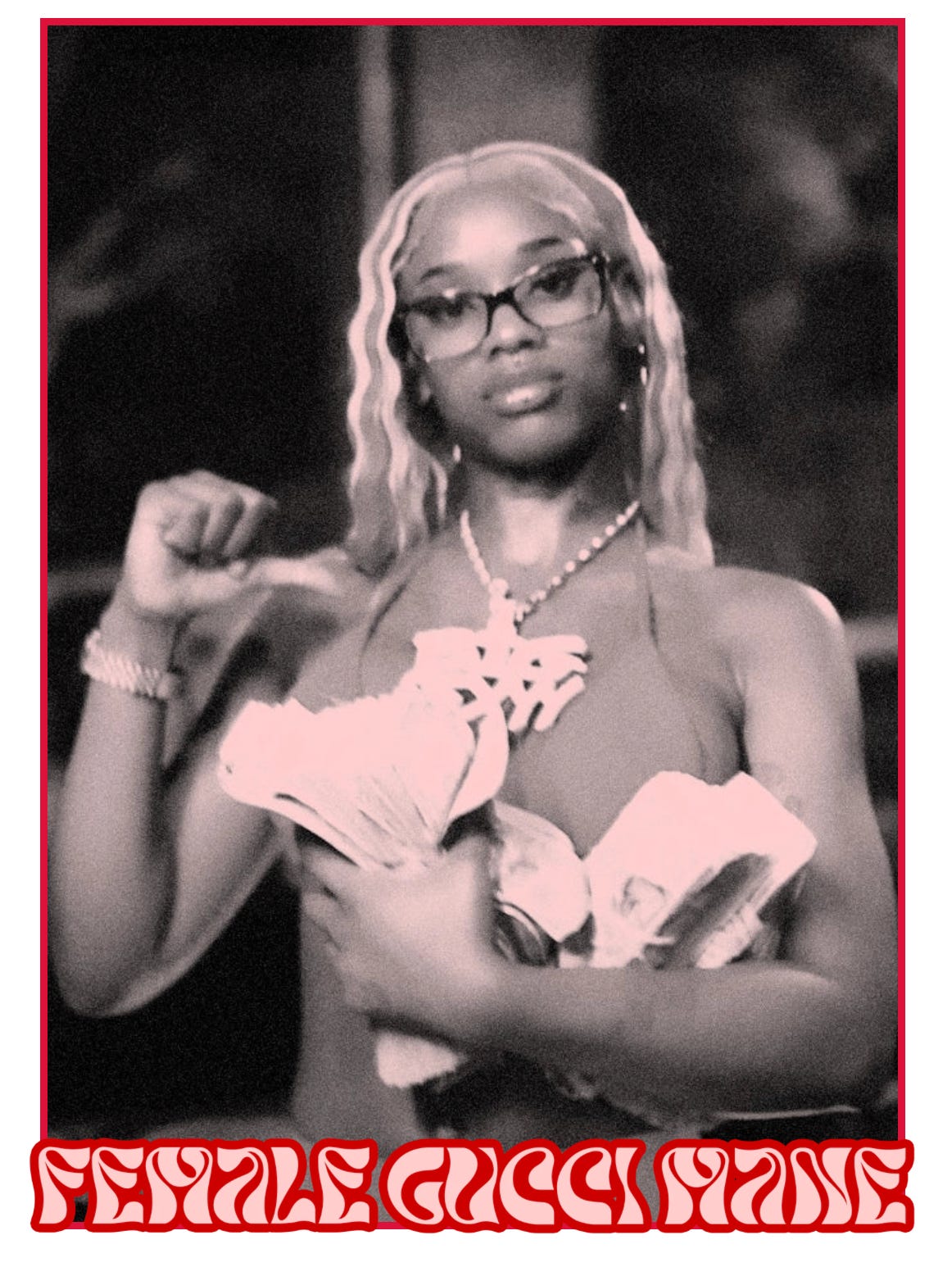007: The Sexyy Red Interview
Sexyy Red doesn’t just confidently play the part as one of the year’s most exciting rap acts—she reinvents her St. Louis roots into something all her own.
It’s not a stretch to say that Sexyy Red is the rapper of the year—but that statement doesn’t come without controversy.
The St. Louis native, born Janae Wherry, went viral with her hit single “Pound Town” a few months back. Shortly after, she delivered an absolute scorcher of a mixtape in June, Hood Hottest Princess, which can best be described as a strong compilation of “standing-on-the-table raps” that transport you to the 2000s. Red’s music and image have also outraged conservative pundits, set the manosphere aflame, and sparked debates around respectability politics. The 25-year-old is absolutely having her moment right now (“My life was changing, everything started moving fast.”) but her appeal goes beyond headlines and chatter on social media.
What draws me to Sexyy Red is her authenticity, plain and simple. Listen closely to Hood Hottest Princess, a cohesive homage to the South: There’s “Female Gucci Mane,” which sounds like a contemporary take on “My Kitchen” in Trina’s register; “Sexyy Walk,” a flip of Project Pat’s “Cheese and Dope”; “Strictly for the Strippers” feat. Juicy J, a mash up of flows and melodies from Gangsta Boo’s “Where Dem Dollas At,” T.I.’s “24s,” and Three 6 Mafia’s “Sippin on Some Syrup.” Tay Keith is all over the project, incorporating the quintessential Memphis murderbells and loud booming basslines.
This all makes sense, given St. Louis is just a 4 hour drive from Memphis, which also has a strong musical relationship with Atlanta. While we’re on the topic of Memphis, check out this write-up I did last week for Bandcamp Daily about a blog-era mixtape that puts the spotlight on the cowbell splatter used by a number of the city’s producers.
Beyond channeling the energy of foundational Atlanta trap and Memphis street music, the St. Louis rapper wears bedazzled BB Simon belts, True Religion jeans, and loud, all-red ensembles like a second skin. Red doesn’t just confidently play the part—she reinvents her roots into something all her own.
For this interview, I set the drama aside and wanted to really focus in on who Red is as a person and the significance of her independence as a woman in the current climate of hip-hop.



